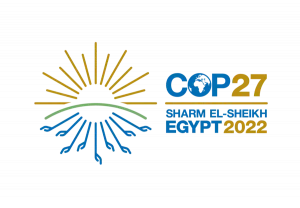
Engagement Hub / Events
UN Climate Change Conference of the Parties UNFCCC COP28 2023

November 30, 2023 @ 08:00 – December 12, 2023 @ 17:00 GMT
The United Arab Emirates hosted the 28th Conference of the Parties of the UNFCCC – COP28 – in Dubai, with a focus on keeping within reach a globally agreed limit of 1.5C, urging agreement on finance, fossil fuels and adaptation. COP28 was also the year of the Global Stocktake, where countries were asked to review their actions to date and had a strong focus on improving lives by focusing on clean air, water and food systems for all.
Building on the Food Systems Pavilion of COP27, the ambitions of COP28 were bolder in terms of integrating food systems within the UNFCCC processes. The Pavillion spread across 10 thematic days each addressing a unique challenge and/or need for food systems.
The Aquatic Blue Food Coalition at COP28
The Aquatic Blue Food Coalition participated and/or engaged in over 10 events on various topics such as sustainable consumption, healthy affordable food for all, reducing food waste and others.
On December 10, under the Protect Thematic day of the Food Systems Pavilion. The Coalition co-hosted with Global Action Network Sustainable Food from the Oceans and Inland Waters for Food Security and Nutrition (GAN) and the Federal Ministry for Economic Cooperation and Development of Germany (BMZ) an event titled: “Little Fish, Big Impact: Transforming School Meals through Local Aquatic Foods”.
On December 10, the Coalition also engaged in an event of the Marrakech Partnership and the HIgh-Level Champions titled : “Implementation Lab: Aquatic Food and Protein Transition”.
In addition to actively engaging with multiple stakeholders at COP28, the Aquatic Blue Food Coalition also signed the High Level Champions Non-State Actors Call to Action for Transforming Food Systems for People, Nature and Climate.
Through its continuous engagement and advocacy efforts with the COP28 Presidential team over the course of 2023, the Coalition secured the integration of blue foods in the COP28 Emirates Declaration on Food and Agriculture. The final declaration includes language on “fisherfolk, sustainable aquatic blue foods and resilient food systems” all which were poorly represented or were missing in previous declaration on food systems – mainly focusing on land-based food systems, agriculture and farmers.